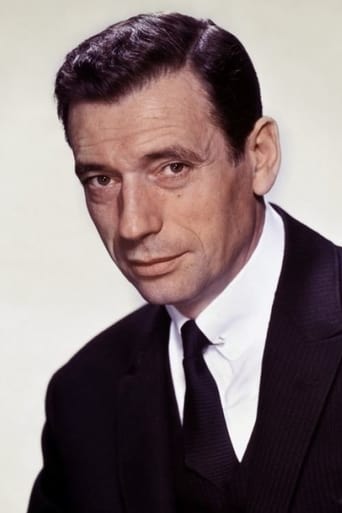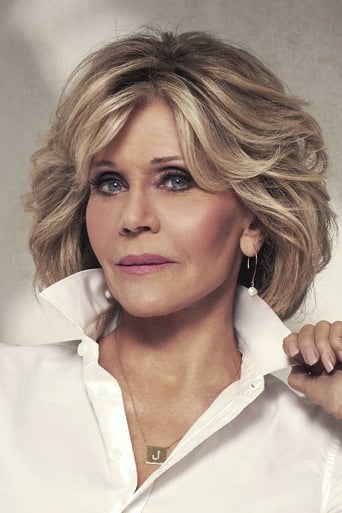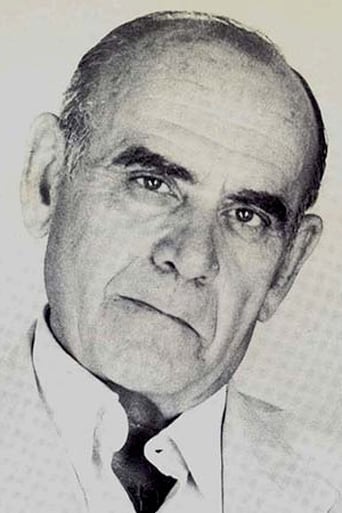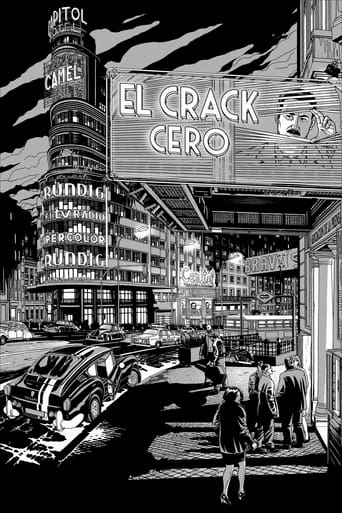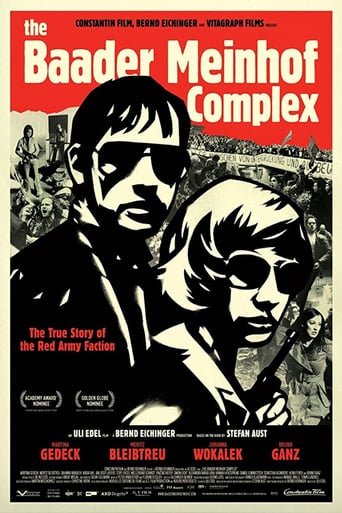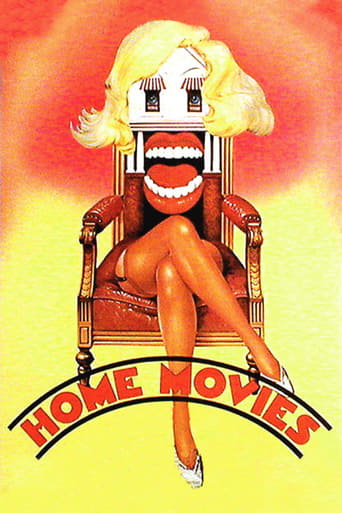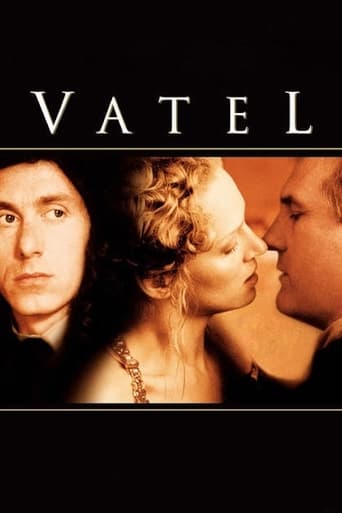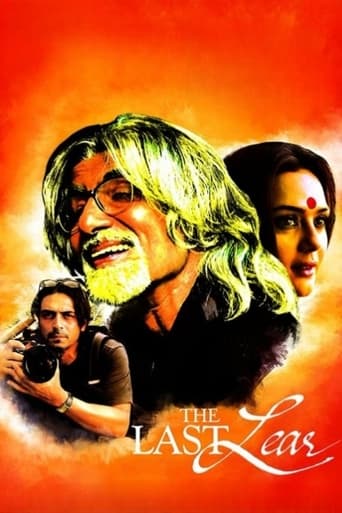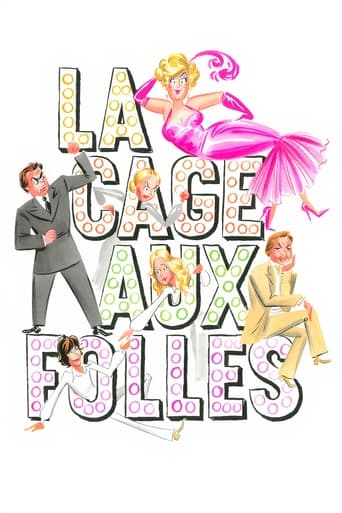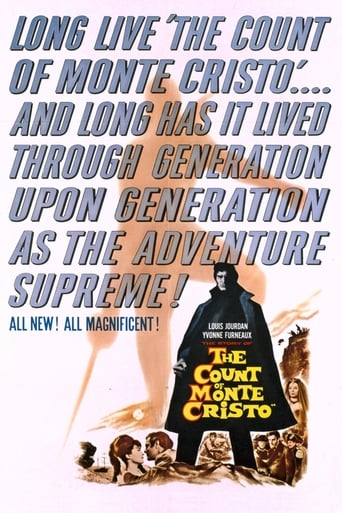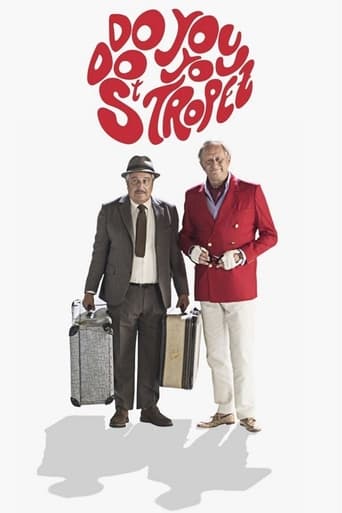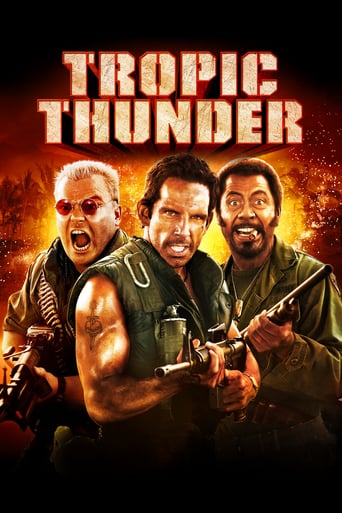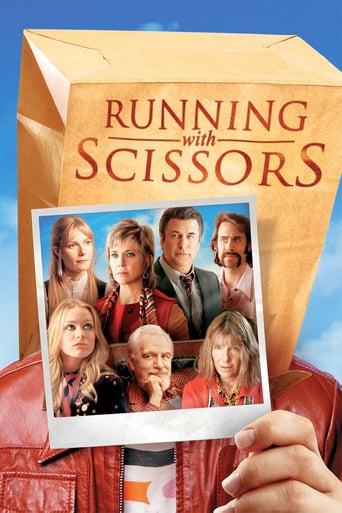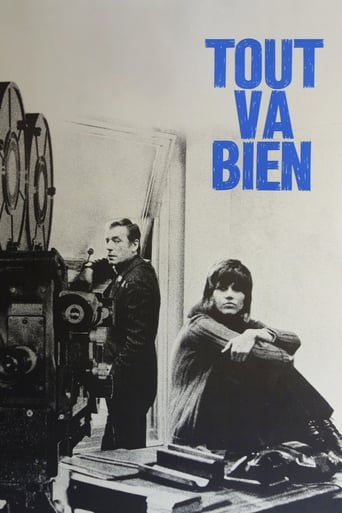
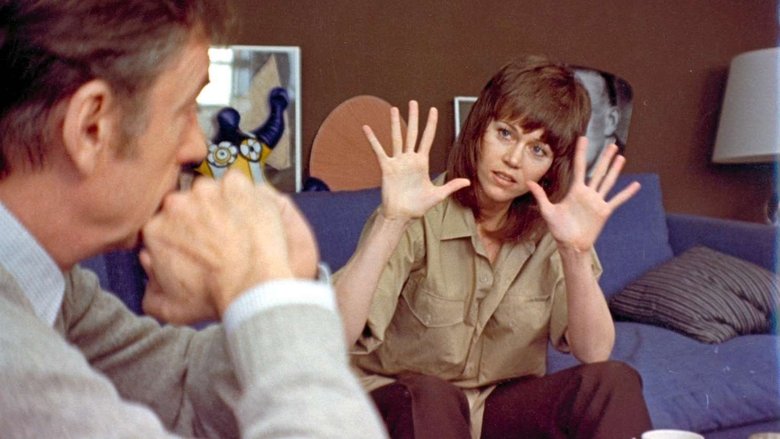
Tout Va Bien (1972)
A strike at a French sausage factory contributes to the estrangement of a married filmmaker and his reporter wife.
Watch Trailer
Cast


Similar titles
Reviews
Simply A Masterpiece
It's no definitive masterpiece but it's damn close.
This story has more twists and turns than a second-rate soap opera.
The acting in this movie is really good.
I find that the films of Jean-Luc Godard rarely speak to me, but they do, such as Pierrot Le Fou, it really hits hard. Perhaps he's most effective when he talks about cinema itself. While Pierrot is most profoundly interesting through its debate about the arts, Tout Va Bien immediately addresses its own existence in its opening scene. It analyzes premise, storytelling, filmmaking and how they got the film made with how it cast two major stars in the lead roles. It's fascinatingly direct, almost confessional. With this abrasive and confrontational style in mind it charges full throttle into its politics of the French revolution in the late 60s as the lower and middle classes rebel against capitalism. While sometimes it can be a little too on-the-nose with its arguments as characters talk to the audience, Godard's point is undeniable and its very well demonstrated through the style. The highlight of the film is definitely the use of sets and colour. I love the stage-like sets where you can see into two floors and a dozen rooms. It categorizes the drama in a cartoonish way that satirizes the politics brilliantly while still retaining their power. Although this argument does interrupt the initial contrived story, it jumps back into it seamlessly making it work for the characters in an unexpectedly emotional way. Tout Va Bien is an incredible film and one of Godard's finest efforts. It lived up to my expectations and more.9/10
Jean-Luc Godard's follow-up to the ultra-Maoist Weekend, featuring Yves Montand as a former New Wave filmmaker and his wife Jane Fonda, as they become active in a factory takeover. The film is of course very sympathetic to Marxism and perhaps Leninism, but it's certainly toned down from the blood fest that is Weekend, perhaps regrettably. Godard insists on reinterpreting and imposing entirely new ideas about what a film can and ought to be, in this case an intellectualized espousal of the working class struggle. A few moments of daring misce-en-scene are worth mentioning; fist, Godard includes an awesome cutaway of the factory to reveal the power-dynamics of the uprising within, and an elaborate tracking sequence in a supermarket to reveal the gross stupidity of capitalist consumerism. Tout Va Bien is clearly a step-down from Godard's brilliant features of the 60's, but it's still provocative and worth any cinephile's time.
I've read commentaries of it being a lesser or unaccessible Godard, but for me it was just astonishing; seriously this film is brilliant on so many levels. Sure is kind of in your face consumerism and capitalism critic, but it has beautiful imagery with interesting symbolism, narratively speaking the way the story is presented with it's long lateral takes (the supermarket tracking shot is awesome)and also the film within a film concept in a very unorthodox way (the way he reminds us it's all a film by showing us the that the factory is a set for example)was fascinating, Godard being represented (mocking himself?) by Montad in that scene where he's interviewed(the part in which Montad speaks about the nouvelle vague) and the beautiful use of color made for a haunting experience for me.
For a film by Godard to be as devoid of beauty, in either sound or image, as is Tout va bien, is extremely rare. The Dziga Verov Group video stuff, if I'm grabbing the right memories, back at the time at the PFA had extraordinary moments. I've always considered him a director who, along with, in particular, Rohmer, knows how to shoot women. Fonda projects a searching integrity, yet sounds arch and looks mawkish, somehow unworthy of Montand. Montand for the most part acts his lines, while she "reads" or, worse, declaims hers. Did she think the politics of the film prohibited a natural tone? Did one or the other of the directors prohibit one? Would anyone today have rendered the film's workers so strident, so atonal, though clearly the directors did it on purpose and with a purposeThose are just gut reactions, my spoiled-by-the-present knee-jerk attempt to glean cinema from a work with aims that may supersede. I thought I'd seen all the Godard that's been available here, and know I saw Godard here in the Bay Area in person, then Godard with Gorin at least twice, and Gorin alone once or twice more. Why then hadn't I seen this? Or how did I manage to forget it?Images likely to stay with me: The check-signings of the opening credits (which made me fantasize some blockbuster director beginning a film the same way); the boss frantic to find a toilet (Has anyone not dreamed this nightmare at least once?); the unending roar of cash registers in the super supermarket at the end. The last sent me on an odd fantasy -- customers reversing the tide, bringing unnecessary possessions into a super supermarket, filling the shelves, then the aisles, and all the airspace until the place is so full it explodes.Though not quite the same thing, but see the not too long ago South Park episode aimed at megastores.


